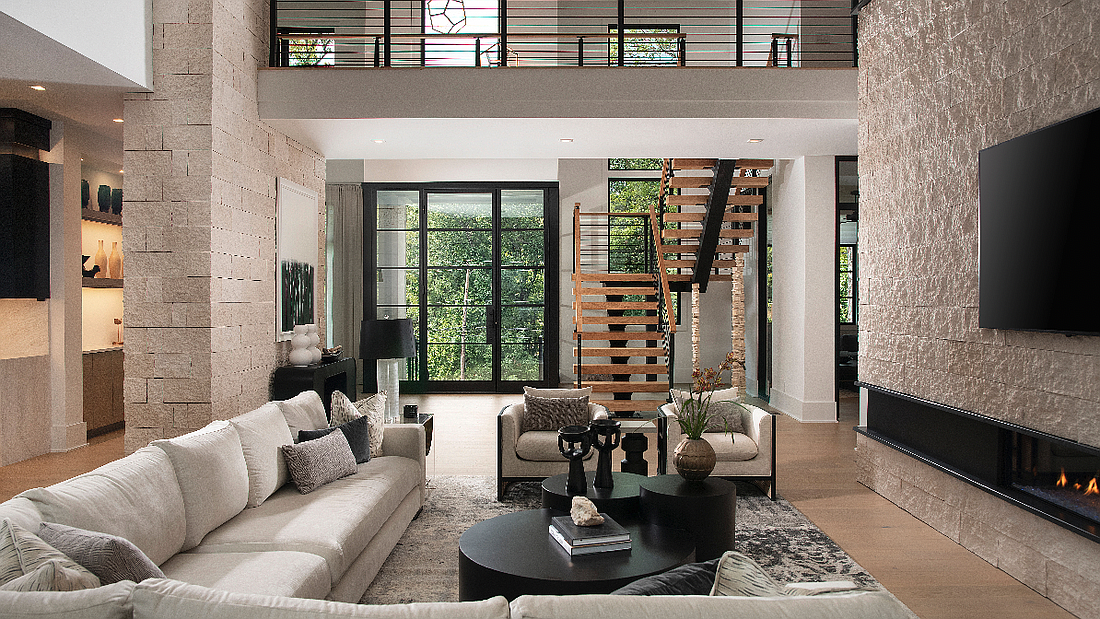- November 21, 2024
-
-
Loading

Loading

AR Homes by Arthur Rutenberg didn’t meet its goal of onboarding eight additional franchisees in 2022, but the Clearwater-based company — which operates a nationwide network of independently owned and operated custom homebuilding franchises — added five, several of which are in the lucrative Austin and Houston markets in Texas.
The growth brings AR Homes’ stable of franchises to nearly 50 in 10 states, including Florida.
“We feel pretty good about that,” says former CEO Jim Rosewater, who stepped down in late November, after the Business Observer spoke to him for this article. “We spent a lot of time evaluating our process. A homebuilding franchise is incredibly complex when you compare it to a sandwich shop or something like that. We’re very selective.”
A slowdown in the residential construction market that began in the latter half of 2022 contributed to an adjustment of the company’s ambitions.
“We had a great first half of the year — it was phenomenal,” Rosewater says. “When things started to slow down in July, I would say it’s on par with going back to 2019 levels. So, to some degree, it’s a normalization. It feels like a slowdown because what we were experiencing was so astronomical — it was crazy.”
He adds, “The question is, ‘Will we be back at the 2019 level? Or is it going to slow beyond that?’ And that's what I don’t know.”
AR Homes will have to navigate the uncertainty and challenges of 2023 with a new top leader: C.R. Herro. A veteran of Scottsdale, Arizona-based Meritage Homes, Herro was named CEO of AR Homes Dec. 1. A Tampa area resident and entrepreneur, Herro says he was drawn to AR Homes because of its unique business model, which he believes can thrive in a cooled-down market.
“It’s not that there’s no opportunity,” he says. “There’s just less opportunity, so you’ve got to be better than everyone else, to make sure your team stays busy.”
Herro sees AR Homes, founded in 1978, as a support system for builders of custom luxury homes that goes “above and beyond the industry standard.”
The firm’s primary focus, he says, will be “to make sure our partners get through this tough time.”
With interest rates on the rise, it can’t be said — yet — that we’re transitioning into a buyer’s market. But Herro prefers to look at the pace and type of home sales as he makes plans for 2023.
“Nonessential transactions are lessening,” he says. “In up markets, a lot of people jump in and out of the market, just because there’s more opportunity. In down markets, they get out. I think we’re going go through a down cycle and have three years of constrained market activity.”
Overheated housing markets, Herro adds, also remove meritocracy from the homebuilding industry, which is another reason why established, reputable companies shouldn’t fear a normalization, even an outright slowdown, of activity.
“In an up cycle — and I don’t think there’s any polite way to say this — mediocre builders thrive,” he says, “ because there’s so much demand. If you can fog a mirror, you can be a homebuilder. And so customers get less and great homebuilders are in the same bucket” as lower-quality firms. “A down market is where you differentiate. It’s where you double down and develop your brand, where you push to inspire customers to make good choices.”
But firmly established, financially strong companies must still be strategic with their resources instead of pouncing on any and all chances to grab market share.
Rosewater, who was with AR Homes for 14 years, says, “We have 100 target markets, but we can’t go after all 100 at the same time. We’ve revamped our franchise development team and process to prepare for increasing the number of franchises we can sell, but if we went out and had sold 20 of them last year, we wouldn't have been able to support 20 new franchises, internally.”
On that topic, AR Homes’ past and current leaders concur. Herro, for example, says he doesn’t want the company to force its way into a new market just because it can.
“It’s a different way to think about growth,” Herro says. “It’s not about coming in and wresting it away. AR Homes is a service organization. A down cycle creates opportunity to go into markets where there are homebuilders who, because they've had to lay off staff, they no longer have a complete transactional support for their business. We'll come in and support those businesses through this time to make them better and grab that market share.”